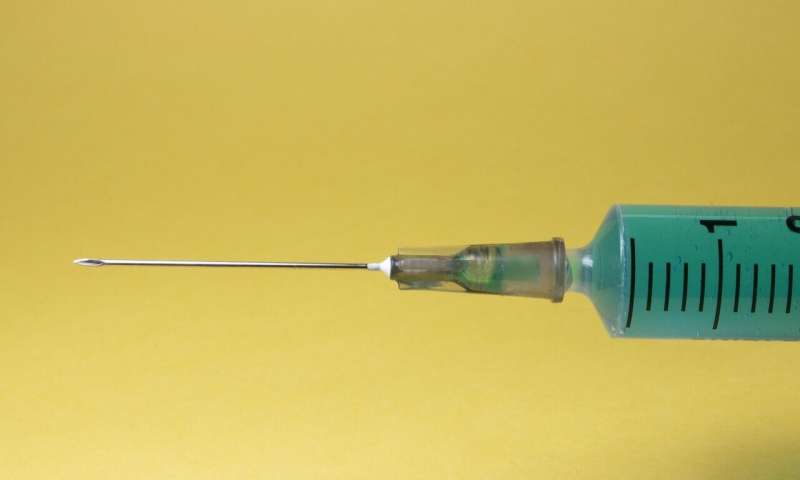
Dengue fever, brought on by a flavivirus named DENV, is a serious international well being problem, risking virtually half of the world’s inhabitants. Because the early twentieth century, the scientific neighborhood has confronted a number of challenges in growing efficient dengue vaccines. This spanned quite a lot of methods—from using ox bile to weaken DENV to the chemical processing of DENV-infected mosquitoes. Nonetheless, the constraints of those methods and the pressing want to save lots of thousands and thousands of individuals from the an infection in its endemic areas led to the event of extra refined dengue vaccines.
In a latest overview printed in Pediatric Investigation, lead authors Professor Kevin C. Kain from the College of Toronto, Canada, and Dr. Ran Wang, Affiliate Professor on the Capital Medical College, China, talk about the present standing and implications of dengue vaccines comparable to CYD-TDV, TAK-003, and Butantan-DV, whereas exploring the challenges in dengue vaccine improvement like ADE, and proposes future instructions on this discipline.
DENV has 4 serotypes (DENV-1 to DENV-4) and triggers each protecting and pathogenic immune responses. Serotype-specific immune responses are typical when contaminated for the primary time, whereas secondary an infection could result in extra extreme dengue because of ADE.
“ADE is initiated when immune complexes of DENV and IgG antibodies bind to Fcγ receptors (FcγR) on myeloid cells. This suppresses antiviral defenses and enhances viral replication,” explains Professor Kain. This is a crucial facet to contemplate whereas designing vaccines for dengue.
The overview attracts from insights and implications from three dengue vaccines—CYD-TDV (Dengvaxia) was the primary licensed dengue vaccine and confirmed efficacy in section III scientific trials. Nonetheless, it was discovered to have lowered safety in opposition to DENV-1, DENV-2, and DENV-3.
Furthermore, this vaccine was solely really useful for people with confirmed prior DENV an infection, limiting its sensible utility. Additional, a vaccination routine of three doses over 12 months was notably tough to attain in resource-limited settings. On account of these causes, CYD-TDV was withdrawn from widespread use, though the WHO nonetheless recommends it for people aged 9-45 years with prior DENV an infection.
The second vaccine—TAK-003—was evaluated over a four-and-a-half-year-long section III trial throughout eight nations the place dengue is endemic. With an total efficacy of 61.2% (in opposition to present dengue an infection) and 84.1% (in opposition to hospitalized instances), it provided robust safety in opposition to DENV-1 and DENV-2 serotypes. However, as a result of inadequate variety of instances of the opposite two serotypes, TAK-003’s efficacy in opposition to these couldn’t be evaluated. This vaccine has a two-dose routine, presenting logistical challenges as within the case of CYD-TDV.
Opposite to the above instances, the Butantan-DV vaccine with its single-dose routine proved to have an edge over the others in simplifying vaccination the place well being care services have been restricted.
Dr. Wang explains, “A 2-year evaluation reported an total efficacy of 73.6% in sero-naïve people and 89.2% in these with prior dengue publicity, with safety in opposition to DENV-1 (89.5%) and DENV-2 (69.6%)”.
Additionally, in a examine that spanned greater than three years, Butantan-DV demonstrated an 89% lower in extreme dengue and dengue with warning indicators. Nonetheless, the efficacy of this vaccine in opposition to DENV-3 and DENV-4 is but to be established. Though the present dengue vaccines exhibit efficient discount of extreme and deadly dengue in scientific trials, their impression on people aged above 60 years continues to be unclear.
The potential for extreme dengue after vaccination has been a big problem, notably regarded as pushed by ADE. When non-neutralizing, cross-reactive antibodies acknowledge conserved epitopes on the DENV envelope protein, it triggers immune responses that weaken antiviral exercise, resulting in extreme illness.
“Understanding the function of conserved epitopes and FcγR signaling in ADE is essential for dengue vaccine improvement, and ADE points in the true world could solely be revealed by means of efficacy research in section IV scientific trials of vaccines”, feedback Professor Kain.
Wanting forward, international collaboration amongst researchers, well being companies, and vaccine builders shall be important to advancing dengue vaccine analysis. Future efforts ought to discover numerous platforms like mRNA vaccines and deal with avoiding ADE. Priorities embody: 1) section IV trials to refine methods, 2) vaccines adaptable throughout populations and serotypes, and three) region-specific formulations concentrating on native DENV variants.
With international collaboration, superior vaccine platforms, and a greater understanding of ADE, we could lastly be on the trail towards eliminating dengue.
Extra info:
Ran Wang et al, Advancing dengue vaccine improvement: Challenges, improvements, and the trail towards international safety, Pediatric Investigation (2025). DOI: 10.1002/ped4.70005. onlinelibrary.wiley.com/doi/fu … l/10.1002/ped4.70005
Offered by
Pediatric Investigation
Quotation:
Challenges, improvements and future instructions in dengue vaccine improvement (2025, April 30)
retrieved 30 April 2025
from https://medicalxpress.com/information/2025-04-future-dengue-vaccine.html
This doc is topic to copyright. Aside from any honest dealing for the aim of personal examine or analysis, no
half could also be reproduced with out the written permission. The content material is supplied for info functions solely.
